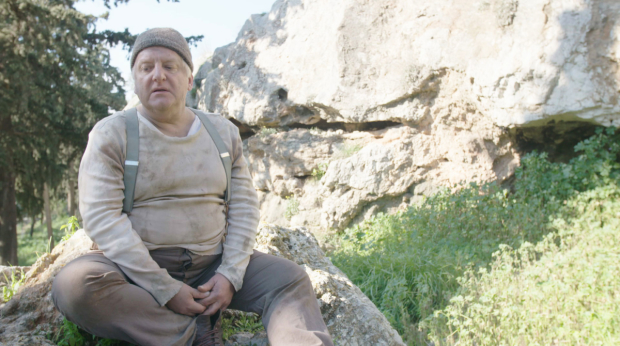Matt Trueman: Shakespeare Live! gave us Shakespeare the poet

"Age cannot wither her, nor custom stale her infinite variety." Shakespeare’s description of Cleopatra is just as true of himself. If this weekend’s bumper Bardathon showed us anything, it was that. Whatever he was in his own lifetime, Shakespeare is not one artist today, but many: playwright, poet, crowd-pleaser and more besides.
Stupid though it sounds to say it straight up, it all comes down to words, words, words – and yet those same words can be so many different things depending on the angle of approach.
In Stratford-Upon-Avon, the RSC’s televised Shakespeare Live! gala gave us Shakespeare the Poet. Here, his speeches were chopped out of context and spoken with the crisp consonants and extended vowels of old-school oratory; every sibilant kissed, every plosive spat. This is so often the RSC way and, though it has its devotees, it’s not how I tend to take my Shakespeare. It treats the text too reverently for my tastes, sssavouring the sssound of its sssentences. Shakespeare, pickled and preserved.
And yet, in the right hands – or rather the right mouth – those words can do so much on their own. Simon Russell Beale, slinking through the ruins of Kenilworth Isle as he spoke of "this royal throne of kings, this sceptred isle," stopped me in my tracks. His pressing delivery, almost confiding to the camera, seemed to catch all the moody majesty of the grey skies overhead. Ian McKellen boomed a commanding segment of Sir Thomas More. Judi Dench twice turned words into liquid gold as Titania, enticing you to swim in the sound of her voice.
Shakespeare’s words should serve his plays, not vice versa
Yet it was Rory Kinnear, as a quivering Macbeth, pumped up post-murder, who proved that Shakespeare really lives in the playing of it. Kinnear has an unrivalled ability to find the thoughts beneath blank verse, and, even ripped from the rest of the play, he gave a sense of Macbeth the man, not Macbeth the literary figure.
Aye, there’s the rub: Shakespeare’s words should serve his plays, not vice versa. I recently interviewed the American director Sam Gold – in town for The Flick – about the prospect of tackling his first Shakespeare, an Othello with David Oyelowo and Daniel Craig. As he said, "There’s a tension in Shakespeare between the incredibly naturalistic – the idea that his plays invented contemporary psychology, that they contain these very real, very complicated people – with a form that’s artificial and technical." The question for Gold is how to draw truth out of that artifice.
It’s what Ivo Van Hove does in Kings of War, a history cycle turned political thriller. His treatment makes Shakespeare utterly, urgently contemporary, so that history’s kings look like our own politicians: Henry V as staunch in his convictions as Tony Blair; Richard III as laughable, initially, as Donald Trump.
If Van Hove shows us Shakespeare the Dramatist, he’s helped by a Dutch translation that frees the plays from the original language. As the Globe to Globe festival showed four years ago, translating Shakespeare can reveal him anew, and Van Hove’s actors mine the truth beneath the text, unencumbered by those over-familiar idioms and iconic lines.
It’s interesting to compare the Globe’s own Hamlet on this front, just back from its two-year world tour. Though played in English, it’s staged with non-English speaking audiences in mind. I caught it in January in Qatar in front of an audience of Arabic speakers and the language barrier didn’t matter a jot. Rough and ready, for very obvious practical reasons, it’s a production that celebrates the act of theatre and the art of make-believe. Everything exists in the playing, from ghosts to duels, clowns to deaths – and that includes those speeches, given space to be spoken beautifully, all part of the play’s rich tapestry. That’s the thing about Shakespeare: he was nothing if not a man of the theatre.










